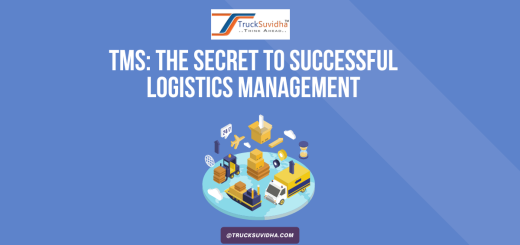E-Commerce Loyalty Boost: Enhanced Logistics Strategies
E-commerce has seen exponential growth in recent years, with more and more customers choosing to shop online for convenience and accessibility. However, with increased competition, it is becoming increasingly important for e-commerce businesses to focus on customer loyalty.
One often overlooked aspect of customer loyalty is logistics. Logistics play a crucial role in the e-commerce industry, from order fulfillment and shipping to customer service and returns. Indeed by improving the logistics process, e-commerce businesses can enhance the customer experience, increase customer satisfaction, and ultimately build customer loyalty. Here are some strategies to increase customer loyalty in e-commerce through logistics.
6 Strategies to Foster Customer Loyalty in E-Commerce
-
Efficient Order Fulfillment:
Efficient order fulfillment is vital for customer satisfaction. Customers expect their orders to be accurately picked, packed, and shipped promptly. E-commerce businesses can optimize their order fulfillment process by implementing automation and streamlining operations. As a result, this includes using barcode scanning technology, investing in warehouse management systems (WMS), and optimizing order picking and packing processes. By ensuring accurate and fast order fulfillment, businesses can meet customer expectations and build trust and loyalty.
-
Fast and Reliable Shipping:
Fast and reliable shipping is a critical factor in customer satisfaction. Customers want their orders to arrive quickly and in good condition. E-commerce businesses should partner with reliable shipping carriers and negotiate competitive rates to provide fast and affordable shipping options. Businesses can also use technology solutions like order tracking and delivery notifications to keep customers informed about their shipments. As a result by providing fast and reliable shipping, businesses can exceed customer expectations and enhance their loyalty.
-
Clear Communication:
Clear and timely communication is essential for customer satisfaction and loyalty. E-commerce businesses should provide customers with regular updates throughout the order fulfillment and shipping process. This can include order confirmation emails, shipping notifications, and delivery confirmation emails. In case of any delays or issues, businesses should proactively communicate with customers and offer solutions or alternatives. Indeed by keeping customers informed and addressing their concerns promptly, businesses can establish trust and loyalty.
-
Easy Returns and Exchange Process:
A hassle-free returns and exchange process can greatly impact customer loyalty. E-commerce businesses should have a clear and easy-to-understand return policy and provide customers with a simple process to return or exchange items. This may include providing prepaid return labels, offering multiple return options (e.g., drop-off at a carrier location or scheduled pickup), and ensuring quick refunds or exchanges. However, by making the returns process convenient and seamless, businesses can build customer trust and loyalty.
-
Personalized Customer Service:
Personalized customer service can make a significant difference in customer loyalty. E-commerce businesses should invest in customer relationship management (CRM) systems to gather and analyze customer data. This data can be used to personalize the customer experience, such as sending personalized emails, providing product recommendations based on customer preferences, and offering special promotions or discounts. However, by understanding and catering to individual customer needs and preferences, businesses can build strong and loyal customer relationships.
-
Continuous Improvement:
Continuous improvement is essential for long-term customer loyalty. E-commerce businesses should regularly evaluate their logistics processes, gather customer feedback, and identify areas for improvement. This may include conducting customer surveys, analyzing customer reviews and ratings, and monitoring key performance indicators (KPIs) such as order accuracy, shipping speed, and customer satisfaction. Indeed by consistently striving for improvement, businesses can meet evolving customer expectations and foster loyalty.
Conclusion
Logistics plays a crucial role in building customer loyalty in the e-commerce industry. Indeed by focusing on efficient order fulfillment, fast and reliable shipping, clear communication, easy returns and exchange processes, personalized customer service, and continuous improvement, businesses can enhance the customer experience and foster customer loyalty. However, in today’s competitive e-commerce landscape, investments in logistics can yield significant returns in terms of customer satisfaction, repeat purchases, and brand advocacy.




Recent Comments